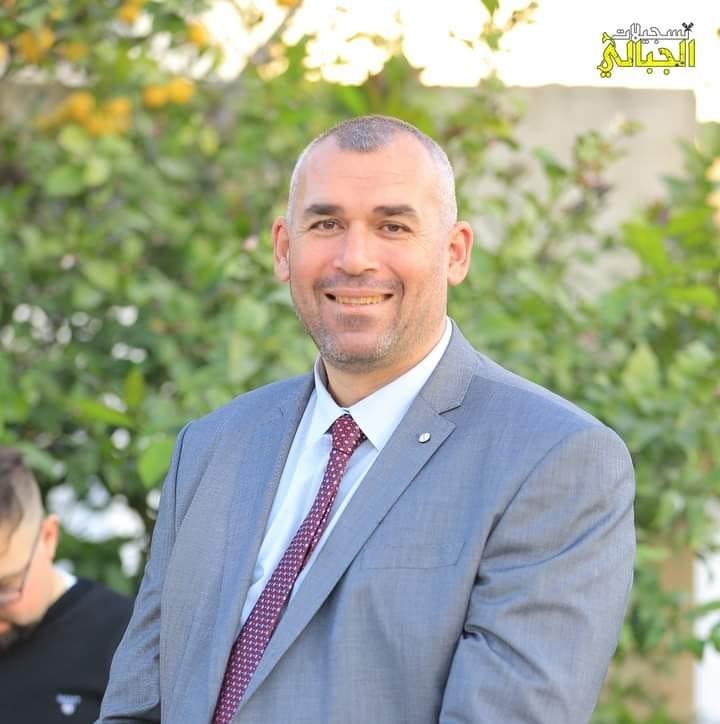Iyad Abdullah Hasan Yousef
@palestine - ramallah
Associate Professor - Faculty of Education - Department of Physical Education - Academic Staff Member
Birzeit University
RESEARCH, TEACHING, or OTHER INTERESTS
Physical Therapy, Sports Therapy and Rehabilitation, Psychology, Education, Arts and Humanities
Scopus Publications
Scholar Citations
Scholar h-index
Scholar i10-index
Scopus Publications
Sana M. Liftawi, Iyad A. Yousef, and Mahmoud W. Kaied
Akademia Baru Publishing
The significance of human sports activities recognition (HSAR) in many computing applications, including sports analytics, smart surroundings, and healthcare monitoring is huge. The current use of vision sensors for HSAR is a difficult task due to the intricate movements involved in sports and fitness workouts, as well as fluctuations in illumination conditions. Therefore, a comprehensive review of machine learning algorithms (such as XGBoost, Random Forest (RF), Decision Trees (DT), and K-Nearest Neighbors (KNN)) and their usage for human sports activities classification based on sensor data called ML-HSAR is presented in this article. A dataset containing 19 different human activities gathered from 8 different people through different types of sensors was used for this work; the dataset contains activities like sitting and standing, as well as other activities that require serious movements, such as running, cycling, and playing basketball. This study primarily aims to determine the performance of the considered ML models in accurately classifying these activities found in the dataset. The training of the algorithms and the subsequent evaluation were done on the segmented sensor data, effectively leveraging the dataset’s temporal aspect. In addition to the presented results for each of these algorithms, the limitations of each algorithm and their strengths in handling the complexities involved in HSAR were also presented. The contribution of this analysis is towards the understanding of the most appropriate ML models for HSAR tasks; it also offers valuable insights for future research and practical applications.
Jamal Alnuaimi, Abdulsalam Al-Za’abi, Iyad A. Yousef, Maroua Belghali, Sana M. Liftawi, Zubaida F. Shraim, and Emad Addin M. Tayih
International Information and Engineering Technology Association
Hashem A. KilaniI, Mo’ath F. Bataineh, Ali Al-Nawayseh, Khaled Atiyat, Omar Obeid, Maher M. Abu-Hilal, Taiysir Mansi, Maher Al-Kilani, Mahfoodha Al-Kitani, Majed El-Saleh,et al.
Public Library of Science (PLoS)
[This corrects the article DOI: 10.1371/journal.pone.0243524.].
Iyad A. Yousef, Hashem A. Kilani, Mo’ath F. Bataineh, Ali Al-Nawayseh, Abdulsalam Al-Za’abi, Maroua Belghali, Jamal Alnuaimi, Waleed M. Shaheen, and Sana M. Liftawi
International Information and Engineering Technology Association
The purpose of this research is to determine the effect of house isolation on the Palestinian people's lifestyles, mental health (MW), and physical activity during the COVID-19 pandemic (PA). The Global Health Guidelines 5 and the Pittsburgh Sleep Quality Index, as well as the Food Frequency Questionnaire (FFQ) (PSQI) (PSQI), were used to collect demographic data. To collect data from all staff and students in Palestinian universities, including faculty and staff, as well as students, a non-discriminatory approach to community sampling was used, consisting of 360 research participants. According to the statistics, men are more likely than women to be in a good emotional state. By and large, people with improved mental states reported improved sleep quality and overall health. Increased physical activity (i.e. 17.33.6) was connected with improved mental health compared to average physical activity (i.e. 13.74.2). It has been proven that there is a relationship between a mental state variable and the amount of regular daily activity. Physical activity improves mental health. Additionally, physical exercise was the strongest predictor of mental health ratings.
Hashem A. Kilani, Mo’ath F. Bataineh, Ali Al-Nawayseh, Khaled Atiyat, Omar Obeid, Maher M. Abu-Hilal, Taiysir Mansi, Maher Al-Kilani, Mahfoodha Al-Kitani, Majed El-Saleh,et al.
PLoS ONE Public Library of Science (PLoS)
Background In the past infectious diseases affected the quality of lifestyle during home confinement. The study conducted examines the influence of home confinement during the COVID-19 pandemic outbreak on lifestyle, mental wellbeing, nutritional status, and sleeping pattern. Method An online multicategorical questionnaire was distributed to collect demographic information combined with the following tools: Food Frequency Questionnaire (FFQ), International Physical Activity Questionnaire (IPAQ), WHO-5 wellbeing score, and Pittsburgh Sleep Quality Index (PSQI). A snowball non-discriminate sampling procedure was conducted to collect data from people attending or working at higher institutions from March 1, 2020 to April 24, 2020. A total of 1723 completed responses (917 males, 37.4 ±13.4 years old and 806 females 32.2 ± 11.5 years old) were collected. Results The female participants had significantly lower mental health scores than males (53.9% vs. 46.1%). The mental wellbeing scores were higher among participants with medium and high physical activity (PA) levels (p < 0.00). Additionally, the mental wellbeing scores were significantly improved by dietary quality and it’s sleeping score (p < 0.001). However, PA was by far the major determinant of the mental health scores. Conclusion Factors such as PA, diet, and sleeping patterns were associated with mental wellbeing during the COVID-19 confinement among Arab participants.

